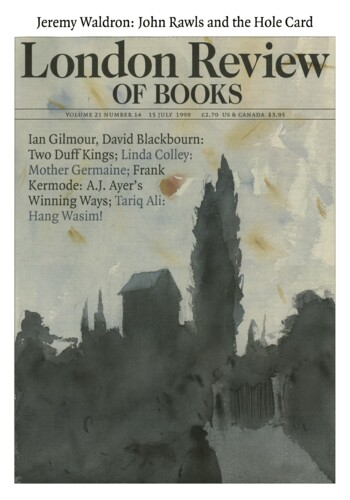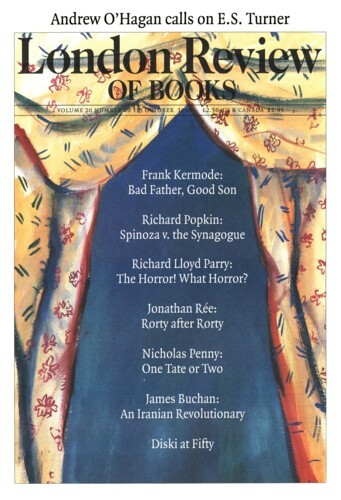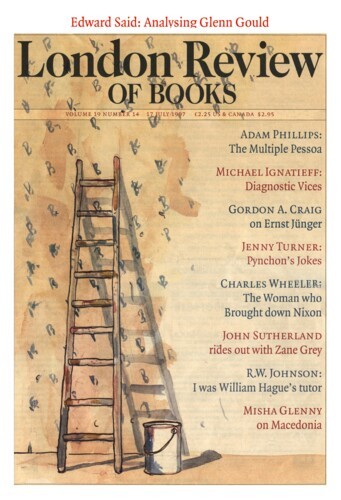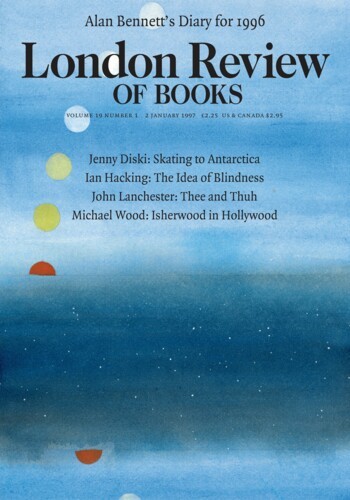How Wicked – Horrid: Two Duff Kings
David Blackbourn, 15 July 1999
To his mother, the daughter of Queen Victoria, he was ‘Willie’, or ‘Willy’. His sister Charlotte, with characteristic charm, gave him the pet name ‘Nigger’. To the British, the man who ruled Germany as Wilhelm II from his accession in 1888 until his abdication thirty years later has always been simply ‘the Kaiser’. Wilhelm has never attracted biographers in the same numbers as Bismarck or Hitler, but no fewer than three Anglo-Saxon historians have tried their hand recently. Thomas Kohut gave us Wilhelm II and the Germans in 1991; Lamar Cecil needed two books to capture the life, the second published in 1996. Now comes John Röhl, with the first of three projected volumes. Wilhelm himself, to whom modesty was always a mysterious idea, would doubtless have been pleased by the thought of a thousand-page doorstopper devoted to his youth. It is unlikely that he would have enjoyed its contents.‘





